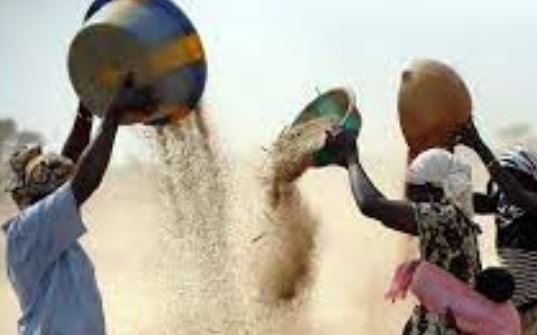Ukraine-Russia War and Food Insecurity in Africa

In the wake of the COVID-19 pandemic and its adverse socio-economic impacts throughout Africa, the crisis in Ukraine threatens to place an excessive burden on African households, most of which were previously struggling to make a living (The world Economic Forum, 2022). Although Africa is still thriving to recover from the socio-economic consequences of the COVID-19 pandemic, the Russia-Ukraine conflict has posed another main threat to the global economy, directly affecting many African countries, especially in terms of food security and necessitating serious and prompt measures to deal with the crisis and save the loss of lives.
According to the UN report (2022), the Ukraine-Russia conflict imposes adverse effects on availability and pricing in some food crops, particularly wheat and sunflower. The current conditions also affect socio-economic recovery and growth, triggered by the rise of uncertainties in global financial markets and supply chain systems. Russia and Ukraine have been always the leading players in the export of wheat and sunflower to Africa. Several African countries, including Algeria, Egypt, Libya, Morocco, Tunisia, Nigeria, Ethiopia, Sudan, and South Africa account for 80% of wheat imports. However, the sanctions imposed on Russia by Western countries further exacerbate commercial flows between Russia and Africa because of the closure of the main port operations.
Before the conflict, the COVID-19 pandemic had reversed hard-won gains in poverty reduction in Africa, leading to the extreme poverty of 47 million, increasing this number by 55 million, and adding 46 million to those at risk of hunger and undernourishment, while the global food prices increased dramatically (The UN Sustainable Development Group, 2022). Accordingly, fewer African households could afford a single decent daily meal because of the high prices, leading to an even more increase in malnourishment. According to the World Economic Forum (2022), high food prices hit the most vulnerable households hardest, making them poor in several aspects, representing their lack of income, access to electricity, cooking fuel, and basic social services. Certainly, these effects of the food crisis would restrict economic activity, increase inequalities, and trigger social tensions and unrest. As always, when conflict and hunger go hand in hand, the world’s most marginalized and excluded pay the highest price (Rliefweb, 2022).
According to the UN report (2022), some regions, including the Horn of Africa and Sahel region, have been at greater risk of food insecurity because of country-specific shocks, climate change, export restrictions, and stockpiling, especially if the adverse effects of the increase in the costs continue as a result of the ongoing conflict. Most African households spend the bulk of their income on food, to a greater extent than anywhere else in the world. Higher food prices are likely to decrease living standards and the quality of life. (UNSDG, 2022). Russia and Ukraine are the world’s biggest producers of wheat, barley, and sunflower, and also the cheapest exporters on the market, making them very attractive to low-income countries (Reliefweb, 2022).
According to the World Bank (2022), some regions such as West Africa and the Sahel region are particularly affected by the war in Ukraine and subsequent food security deterioration since they are significantly dependent on food imports. The region’s high incidence of food insecurity is rooted in a combination of structural challenges such as fragility, high levels of poverty, climate change, environmental degradation, and low agricultural productivity. The successive waves of the COVID-19 pandemic and associated impacts on supply chains have worsened the food security situation in the region, which indicates the need for strategic approaches and cooperation of all human rights organizations to relieve the burden of this deprived population of the world. The inevitable fact is that Russia’s invasion of Ukraine is destroying lives, homes, and infrastructure, while also causing a humanitarian crisis, which will exacerbate global food insecurity resulting in a catastrophe. At such a time, the need for international coordination and cooperation to help the most vulnerable groups becomes more apparent than ever.

